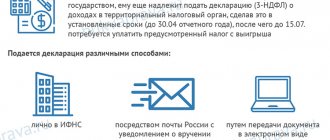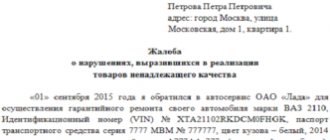How are utility bills calculated?
Each utility organization makes an accrual for the service provided on the basis of the developed tariff and the procedure for calculating the fees collected in Articles 42, 43,44 [2] approved by the Government of the Russian Federation. The communal service provides the following services for citizens:
- 24-hour water supply and wastewater disposal.
- Uninterrupted gas supply.
- Providing housing with electricity.
- Heating of premises during the heating season.
- Maintaining housing and common areas in a suitable condition.
- Ensuring proper sanitary condition of the local area of the Moscow Railway.
Depending on the type of service provided, there is the following principle for generating attribution amounts:
- payment for consumed resource services, which occurs based on the actual volumes of consumed service, determined from meter readings;
- accrual for work performed related to maintaining the general condition of the building in a suitable condition for use.
These include:
- maintenance of elevator facilities;
- cleaning the territory belonging to the common household;
- removal of solid waste;
- lighting of common areas;
- carrying out complex measures to repair the building.
And if everything is simple with the calculation for the actually consumed service, which is calculated from the difference in meter readings, then homeowners often neglect to pay charges for the maintenance of a residential building. Based on the housing complex, payment of utility bills is always made, regardless of the fact of residence and the presence of registered persons in the apartment.
That is, getting rid of the obligation to pay rent is completely illegal, but there is a possibility of reducing payments in full.
What rights does a person registered in the house, but not the owner, have?
- Without exception, all members of the registered person’s family living in the dwelling (if it is privatized) have an equal position to use this living space. Such persons may not have this right in cases provided for in a special agreement. All persons registered on the territory of the living space are obliged to use the premises only for their intended purpose and take all possible measures to preserve it;
- Persons limited in legal capacity on the basis of a court decision and who are registered are also required to answer for all obligations for the operation of living space, unless otherwise provided in additional agreements;
- In cases where the legal relations of persons registered on the territory of the living space are terminated with the loss of the rights of the owner, all rights to operate the apartment are automatically lost. However, there are cases when people lose the right to live in a home, and, for good reason, they cannot purchase another residential space. In this case, they can acquire the right to stay in the home for a limited period. Provided that during this period the owner himself is deprived of the right to living space, this person automatically loses the right as well.
We recommend reading: Benefits for two children
How does the presence of metering devices affect accruals?
A very good option to reduce utility bills is to equip your home with meters. In the case of not living in housing, the absence of resource consumption will be confirmed by meter readings.
But it should be borne in mind that you must pay for the actually consumed resources, the amount of which is recorded on the meters, even if no one is registered in the apartment.
Without installed meters, payment is calculated according to the average, determined in each region separately, taking into account all registered citizens, regardless of the fact of non-residence.
If there are no meters and you are not actually living in the apartment, you can count on recalculation of the total amounts. Before initiating a reduction of the presented amount, you should make sure that there are the necessary grounds for making recalculations. Such documentary evidence includes:
- An act of absence of the consumer at the place of registration, which is drawn up by an official of the management company and signed by neighbors acting as witnesses.
- Travel document for departure and arrival of the resident.
- A trip to a country medical facility.
- Certificate from the place of study, if it is located outside the locality of registration.
- Travel certificate in case of a long business trip.
Payment for housing and communal services if no one is registered in the apartment
Do I need to pay utility bills if no one is registered in the apartment?
What utility bills must the apartment owner pay? In order for there to be grounds for non-payment of bills for a particular service, logical reasoning is not enough; a legal framework is necessary.
Accruals
To understand which services are mandatory for payment, and when the owner has the right not to pay for housing and communal services, you should understand the resource accounting system and the necessary costs for maintaining real estate, as well as the structure of billing to citizens.
The services for which property owners are billed can be divided into:
- ensuring comfortable living for citizens;
- aimed at ensuring the functioning of the premises and its safety.
Some of them can be calculated based on the area of the room, and some based on the number of users. In the absence of meters, charges for gas, sewerage, electricity and water supply are made based on the number registered.
Services can be personal and general, payment for which is distributed evenly among all users.
Services, without the provision of which the premises will become unusable or unfit for habitation, must be paid for by the owners, regardless of registration and presence in the premises.
These include:
- current and major repairs;
- maintenance of premises (payment of rent);
- heating fee.
You can stop accruing other services by law, and some of them by agreement with the management company or the chairman of the HOA.
Services that can be refused at the level of management companies and HOAs include cleaning and beautification of the local area. And also a fee for additional services.
These include payment for parking, common antenna, security, etc. If these services are provided to each apartment automatically, you must refuse them in writing to the management company or HOA.
Each apartment will be billed monthly for gas, electricity, sewerage, hot and cold water.
Payment for these services can be suspended if no one really uses them. Or reduce it if, despite the fact that no one is registered in the apartment, people live in it or are carrying out repair work.
How do you pay for rent and heating?
Calculation of payments for heat received and housing maintenance, in everyday life - rent, occurs by multiplying the approved tariff by the square footage of housing. The number of people registered or actually living is not taken into account in the calculation formula. Therefore, it is not possible to free yourself from the financial costs of paying for these services.
It is important to know that an unregistered homeowner who does not live in the apartment is required to pay any additional costs that are aimed at maintaining the comfortable existence of the residents of the house and approved at the general meeting of owners.
Recently, many households have acquired heat meters that measure the amount of thermal energy spent on heating the apartment. Only in this case will the owner be able to reduce heating payments using heat meter readings. In other cases, recalculation for the service of heat engineers is not carried out.
We explain who has the right to live in someone else’s apartment without registration
Guests who do not have temporary registration will face fines. But there are exceptions.
Brothers, sisters, guardians, trustees and wards of the owner of the property were exempted from administrative liability for living in a relative’s apartment without registration. This law, signed by Russian President Vladimir Putin, was published on the legal information portal on February 17. The Parliamentary Newspaper tells who else can live in the living space without registration and for how long.
Don't be late or you'll pay
Often circumstances develop such that a person is registered in one place, but lives at another address - for example, in the apartment of a friend or landlord. However, according to the law, you cannot simply stay on foreign territory for a long time - according to Government Decree No. 713, all Russians are required to register at their place of stay or place of residence with the registration authorities.
According to the law on the right of citizens to freedom of movement, if a person lives temporarily, he is given 90 days to register, and if he moves to a new apartment - only 7 days. If these deadlines are not met, then illegal residents will pay a fine of 2-3 thousand rubles, tenants or homeowners - 2-5 thousand rubles, legal entities - 250-750 thousand rubles. Fines are even higher in Moscow and St. Petersburg. There they amount to 3-5 thousand rubles for citizens, 5-7 thousand rubles for individuals, 300-800 thousand for legal entities. For example, local police officers can identify violators during a raid on apartments.
Who will not be asked according to the law?
At the same time, as stated in one of the notes to the Administrative Code, some citizens may live in another house without registration. These are, for example, those who are registered in a dwelling located in a populated area in one region. Those registered in the Moscow region can freely stay in Moscow, and residents of the Leningrad region can stay in St. Petersburg. In the same way, residents of Sevastopol can live in any city of Crimea without registration, and people from different cities of Crimea can live in Sevastopol.
Those who come on vacation to a hotel, sanatorium, or boarding house are also exempt from registration if the continuous period of their stay does not exceed 90 days. Administrative liability does not apply to the spouse of the homeowner, his children, including adopted children, parents, grandparents, and grandchildren. Now this list also includes siblings, wards, trustees and guardians of the owner.
As Alexander Bashkin, a member of the Federation Council Committee on Constitutional Legislation and State Building, previously explained to Parliamentary Newspaper, amendments to the legislation will eliminate the uncertainty caused by the ambiguous regulation of similar legal relations.
How to avoid punishment
If a person who does not have registration lives in someone else’s apartment, for example, for only a week, and the local police officer discovered this and drew up an administrative protocol, then his innocence can be proven. If the case goes to court, then it is necessary to provide documents indicating that this person is visiting for a relatively short time. These could be train or plane tickets dated no later than three months ago, hotel receipts, traffic police fines from another city, etc.
More details on All Iskitim: https://vesiskitim.ru/2021/02/19/190601-kto-imeet-pravo-zhit-v-chuzhoj-kvartire-bez-registracii-obyasnyaem
How to challenge a utility bill
The contractor reflects all calculations of utility services in a receipt, which is provided to the consumer monthly for payment. Therefore, you can exercise control over the amounts presented for payment by checking the data specified in the received invoices. If you discover unnecessary charges made for a service that the apartment does not receive, the actions must be contested. The action algorithm is as follows:
- draw up an application addressed to the head of the enterprise that made the excess accrual. In the appeal, indicate the reason for disagreement with confirmation of your correctness;
- the period for consideration of the application is no more than thirty days;
- a written response must be provided to the appeal, which explains the nature of the occurrence of these amounts. When accruals occurred in error, the company is obliged to recalculate downwards to the amount presented. If utility companies do not recognize the assigned amounts as unlawful, they are obliged to decipher the final claims with reference to regulatory documents that allow these calculations to be made;
- If the consumer disagrees with the arguments of the utility companies, the unlawful actions can only be appealed in court.
The same procedure can be followed if the utility company refuses to provide credit for the temporarily absent owner. Before drawing up a statement of claim, you should definitely obtain a written refusal from the utility organization to make a recalculation, since this paper is a supporting document in litigation with opponents.
Legislative changes that relate to innovations in housing and communal services occur annually. However, on the issue of payment for utilities in the absence of registration with the owners or in the absence of actual residence of the owners, legislators do not change their decisions. Therefore, in order to avoid incurring additional expenses in the form of paying penalties and legal costs, you should be more attentive to mandatory payments and avoid accumulating debt.








